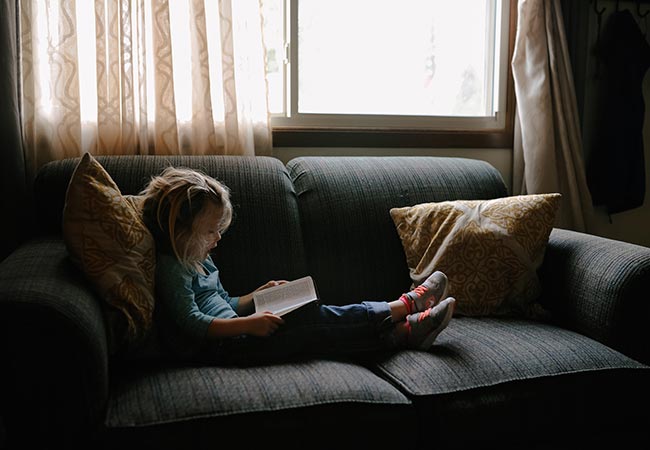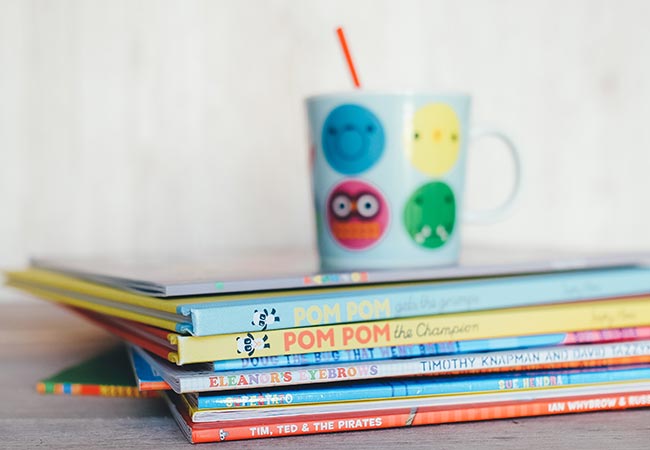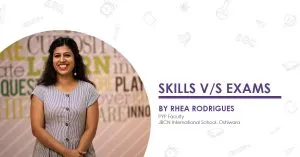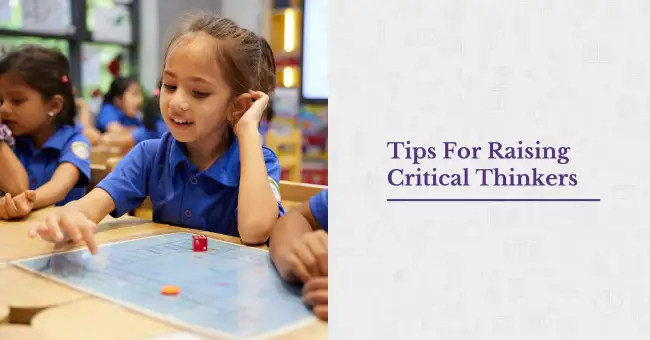
Often busy parents say they can’t find the time to read along with their child not realizing that reading together could be the best time spent close to the child and gift their child the “Reading Habit”.
Interesting Ways To Develop Good Reading Habits In Children:
- Read Aloud is a must It’s like hearing a new language through stories (like hearing the mother tongue and learning the language) and the illustrations help to understand the text and spoken word. It helps with listening skills as children understand the spoken text as they progress.
- Fix a time to read. To create a good habit, things should be done at a particular time. Like the child brushes his/her teeth on waking and before sleeping. So they just know that now is the fixed time to read and they can’t skip it. Like they can’t skip brushing. Reading before bedtime is a good time and this can develop a good reading habit.
- Children who don’t have the reading habit can read before self-study time and look at it as language enrichment time. If children read regularly, their vocabulary, sentence structure, imagination (needed for creative writing) and writing skills improve and they are able to understand other subjects (history, science, math, etc) easily. The Math problems will appear as Math story sums. These are the benefits of good reading habits in children.
- Create a cozy place to read. It becomes a special place and they associate it with reading. Positive vibes are created and received by the child to read.
- Read with a pet or soft toy. Reading with a non-judgmental companion gives the child confidence and makes them feel important.
- Make them read with a friend; a book-themed party or activity. This shows that you value reading and books. It becomes a positive, enjoyable and intellectual activity with friends. Your child can share his/her favorite book characters with friends and books can be brought alive at a birthday party. Gift books on Birthdays and other occasions, give books as return gifts.
- Printed books and avoid gadgets. Always begin with printed books and not digital ones. Once they advance they could explore other mediums. Without the distractions of television and I pads, children will automatically want to read to pass time.
- Be a role model, read in front of them. Show your child that reading is important to you.
- Listen to your child read and show interest in what they read. Share stories read. Read a book and watch its movie together.
- Read about their favorite book’s author. What motivated the author to begin writing? Author study inspires children to read and write too.
- Start with humorous stories, who doesn’t like a good laugh? Once children enjoy a funny story they will read other genres (fables, fairytales, folktales etc.)
- Read nonfiction books. They realize that reading can give them information and increase their knowledge. They will notice how the layout and purpose differ. Discovery new places through books
- Subscribe to a magazine. Children look forward to it every month. It gives them personal belongingness where they can gain current information, read short stories, solve puzzles etc in it.
- Enact the story, become the characters. You (or their friends) and your child can bring the book alive. Take turns in reading a page; modulate your voices.
- Play with stories: Change the ending of the story, make up stories and interchange characters of two stories. Show your child that reading doesn’t end with a book; they can be the author too.
- Comprehension skills: Ask questions after/in between the stories and retell the story, take a quiz or create a quiz. It gives you an idea if your child understood what he/she read and even motivates the child to pay attention to what he/she reads.
- Use/connect the vocabulary, imagination, and information in or to your daily life. This will reinforce the idea that time spent reading is useful.
- Keep a reading log/bookmark and note the books read. This acts as a comprehension tool and a way to track books read. The child can be given a target and rewarded.
- Don’t force a reluctant reader and don’t ever give up. Read to them so that they can realize what they are missing and in turn don’t miss out on reading. Audiobooks accompanying a book are useful.
- If a child is reluctant to read then try making children read fiction or nonfiction connected to their favourite topic/subject (sports, school or animal stories, etc.)
- Allow them to select their own books; they are more likely to read them. They feel responsible to complete it since they found it interesting.
- Graphic novels interest older children. There’s a lot happening in their lives and a quick illustrated action-packed short novel grips their attention.
- Visit book stores and book launches; get an autographed book. Show children that books are as important as clothes, toys, and food. Reading is food for the mind. Visiting book stores frequently will help in developing good reading habits in children.
- Share books with cousins and friends or Donate books. Books are so valuable that they just can’t be thrown away they should be passed on since they are a treasure of knowledge.
- Create a reading challenge for your child. 2 books a week could be the challenge. A reward should be assigned.
- Make reading a fun-filled and relaxing habit.


In 2017, Bill Gates stated in the ‘TIME’ magazine that reading is “absolutely” essential to success. The reading habit should be cultivated wherein it becomes an asset that is valued in adulthood as it provides a tool to attain continuous knowledge and a book becomes a companion wherein a person also reads for pleasure and relaxation.
Written by- Sunita Monteiro
Teacher Librarian JBCN International School, Borivali











